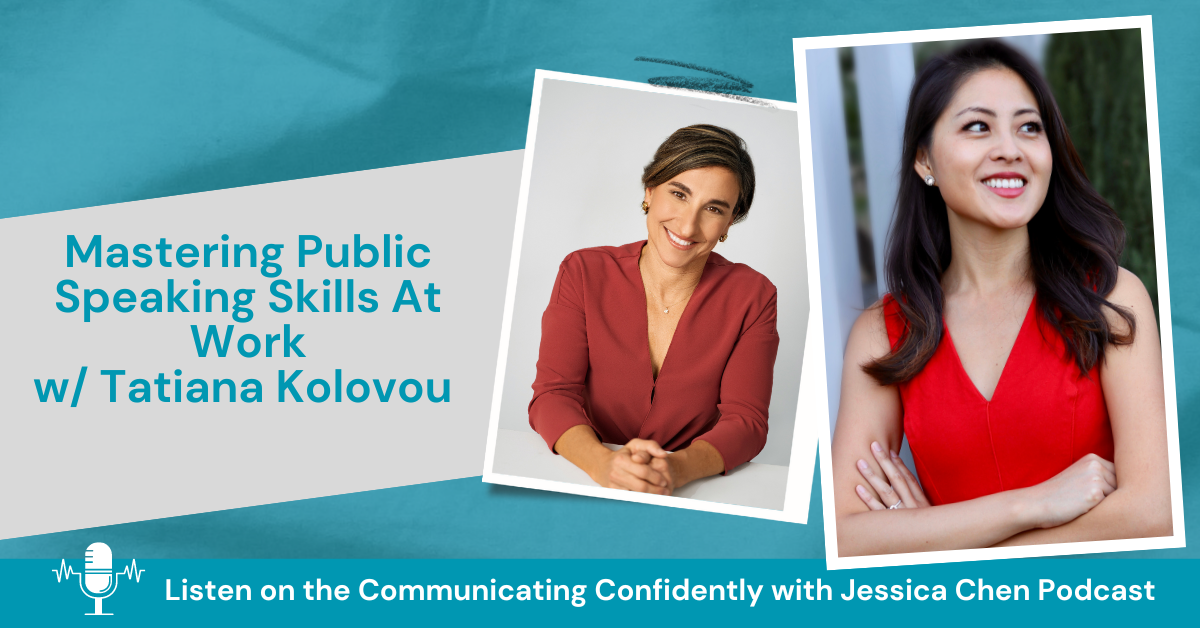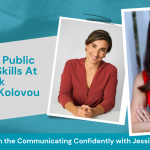How To Be A More Authentic Communicator
Authentic communicators are not only strong communicators, but are also effective. That’s powerful. Communicating authentically means when people listen to you, they feel like they can trust what you’re saying. To become trustworthy, you have to be aware of yourself, be aware of others, and have strong EQ.
When you engage authentically, people will pay attention to what you are saying and this will give you more confidence as a speaker.
Authenticity is in demand. Employees, team members, shareholders, potential investors, and the public are demanding more authenticity. It’s part of creating your own workplace brand. The better you are at expressing yourself in your own unique style, the more career success you will see.
Below are 3 strategies to help you become a more authentic communicator.
1. Mean What You Say
Words are powerful. Thus, you have to mean what you say. Otherwise whomever you are speaking with will catch on. The trust you had built or are trying to build will break. Be true with your words.
- Truth Matters – The truth matters. For example, let’s say you are leading a team that has just finished a major project. During the course of the project, you praised each person for their work, even though you didn’t really think they did a good job. Now the time has come for you to evaluate their performance individually. During the review, you tell some of them their performance was subpar and you were disappointed. Your team member may be extremely confused because you gave them positive feedback the entire time. The inconsistency may cause doubts and your team may even question your judgment. Be true to your words. Give honest feedback when necessary and give praise when due.
 Be Clear – It is important you are crystal clear in your communication. Don’t let others guess what you mean to say. If people have to guess, the meaning behind what you said will get lost. Make sure what you say is clear and easily understood.
Be Clear – It is important you are crystal clear in your communication. Don’t let others guess what you mean to say. If people have to guess, the meaning behind what you said will get lost. Make sure what you say is clear and easily understood.- Tone + Body Language – As you converse with others, be sure your tone and body language matches the message you are trying to deliver. For example, if you are really excited about an idea – you should be making eye contact with your team and nodding your head in approval. You should also be using varying tones of excitement as you share your the idea. If you have your arms crossed and are looking down at your shoes with a very monotone voice, your team members won’t believe you are excited. You might be saying the exact words, I’m excited, but your tone and body language says the opposite.
2. Mutual Understanding
In order for your communication to be perceived as authentic, you will need to ensure there is mutual understanding. This means taking responsibility for your message, sharing a bit about yourself and your thought process, and building your own self-awareness.
- Take Responsibility – When you deliver a message to your team, your superiors, or your colleagues, you will need to take responsibility for what you’ve said. This means ensuring everyone understands your message the way you intend. For example, if you send an email to your team and a member of your team feels a certain way about your message, it is up to you to work things out and clear any confusion. You can set aside a time to meet so you can go over your email with this person. Ensure they understand what you said and why.
 Share a Bit About Yourself – Communications is a two-way street: the person sending the message and the person receiving the message.
Share a Bit About Yourself – Communications is a two-way street: the person sending the message and the person receiving the message.
Just like any relationship, if there is no connection (or lack of understanding) between two people, the message can feel inauthentic.
To build a stronger connection, you will need to share a bit about yourself. For example, if you have a weekly video meeting with your team, ask them about their weekend. Then, tell your team about your weekend before diving straight into the work. Some folks think sharing a bit about themselves is a waste of time, but that’s not true. Unveiling some personality is how others will feel better connected and engaged with you. It will also help build trust and authenticity.
- Self-Awareness – Self-Awareness is being aware of your actions, feelings, thoughts, and messages. In order to have mutual understanding with others, you have to understand yourself. For example, if you know speaking in front of a group of people makes you extremely nervous – you can prepare ahead of time. This means taking courses to ease your nervousness, practicing your message so it is more natural, and centering yourself before you speak.
Mutual understanding is important for authenticity. You need the person or people you are speaking with to understand what you are trying to say.
3. Be Consistent
We have all been in situations where someone says something but does the complete opposite. Or perhaps the person does nothing at all. This is incredibly frustrating. If you want to be seen as an authentic communicator, your actions must consistently match your words.
- Do What You Say – If you say you are going to have a project completed by Friday – make sure the project is completed by Friday. Of course, things come up, which is why it is important for you to communicate these issues before your deadline. As a team leader, if you say you will provide xyz for your team, make sure you do. You will automatically be seen as inauthentic if you don’t do what you say you are going to do.
- Follow-Up – Following up is important not only for consistency, it also shows strong emotional intelligence, leadership, and authenticity. The person will feel like you really do care.
Consistency in your messages, actions, and follow-up will help you be seen as a more authentic communicator.
Authenticity is important for career success. Being authentic will give you confidence and help you elevate your communication to its highest level.
__
Whenever you’re ready, there are 3 ways we can help you:
- Discover your communications style so you know where to start. Over 4,000 people have found theirs here.
- Attend our monthly communication workshop to build communications confidence (new topics: public speaking, advocating for yourself, building credibility, etc) here.
- Get your brand in front of 43k+ people by sponsoring our newsletter or Soulcast Media | LIVE LinkedIn events [contact: hello@soulcastmedia.com]











